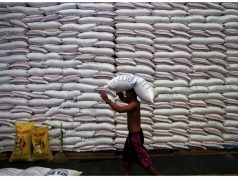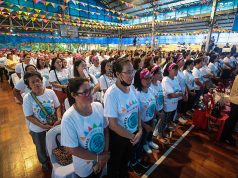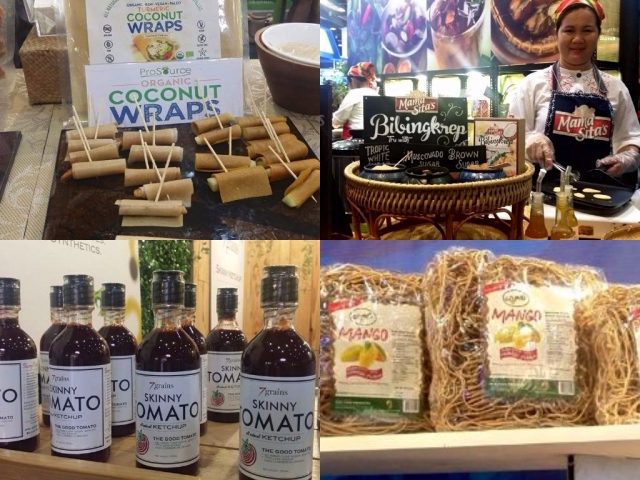
Premium food and ingredients from different countries are all being showcased under one roof for trade buyers and participants coming from all over the world at the International Food Exhibition (IFEX) Philippines held at the World Trade Center in Pasay City from May 19 to 21.
With the theme “Taste ASEAN,” the exhibition—organized by the Department of Trade and Industry-Center for International Trade Exhibitions and Missions (DTI-CITEM)—proved to be not only a trade buying show but a gustatory fete of unique flavors and sustainable food offerings as well.
CITEM Executive Director Clayton Tugonon told InterAksyon, “We are trying to promote the country’s culinary history and tradition.”
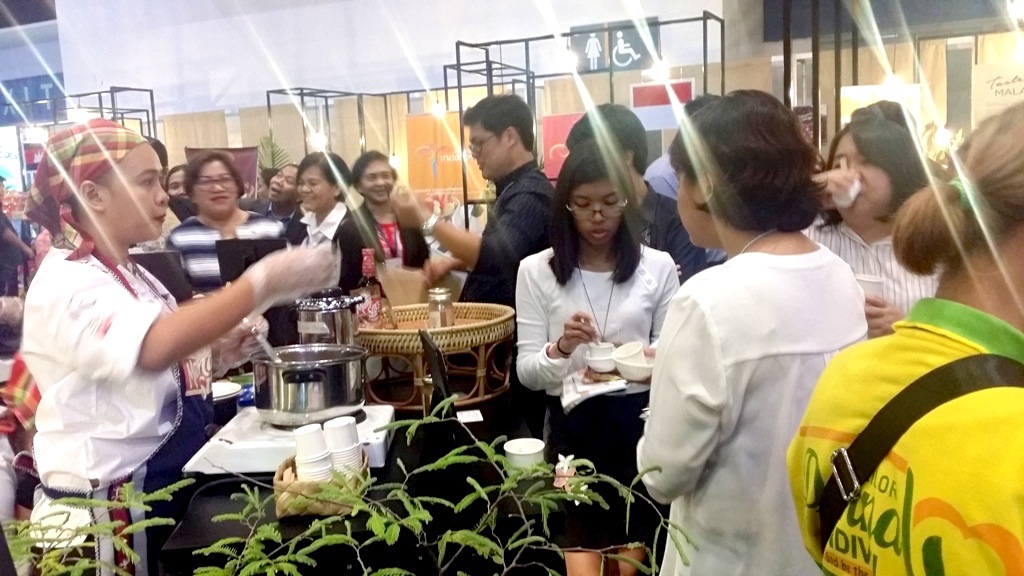
“Food is one way of communicating to people. We may not talk the same language but we eat the same food. It’s one way of opening up our doors to ASEAN neighbors, and were very happy that they are appreciating it. It is a starting point wherein our business among our neighboring countries will really prosper,” he added.
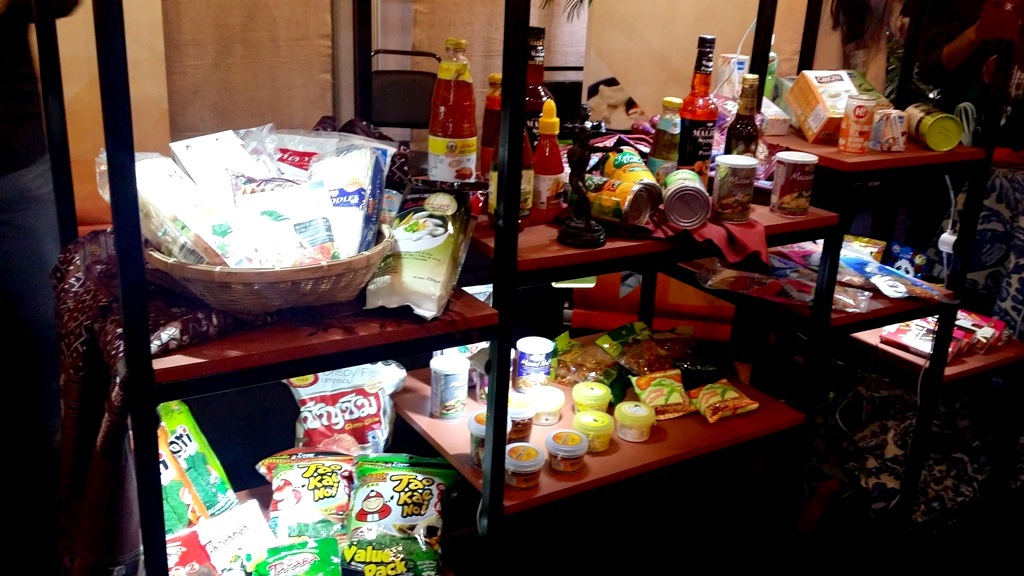
Specifically for the Philippines, Tugonon mentioned that DTI-CITEM aims to show “what Philippines is capable of doing” through IFEX, and hopes to promote micro, small and medium enterprises (MSMEs).
“If there is an influx of buyers of food, there’s going to be development..It also helps the growth of our country in terms of GDP,” he said.
According to DTI Undersecretary Nora K. Terrado in a speech during IFEX’s opening program, in 2015, Philippine food industry is among the top industries where MSMEs thrived.
“Out of 900,000 MSMEs in the country, 13 percent of this are in the food and accommodation services, which created a total of close to 700,000 jobs around the country,” Terrado said.
“In 2017, the agricultural sector has so far contributed almost 10 percent of the total GDP. It has provided employment to many of our fellowmen, especially in the regions and in areas where the poorest of the poor are found. I believe these industries can perform even better with the right kind of support extended to the whole value chain–from the farms to the factories, from the retail outlets to local consumers, all the way to the global export market,” the undersecretary said.
Moreover, in terms of Philippine products, Tugonon said they aim to push more of our local cacao and coffee, which have high demand in the international market.
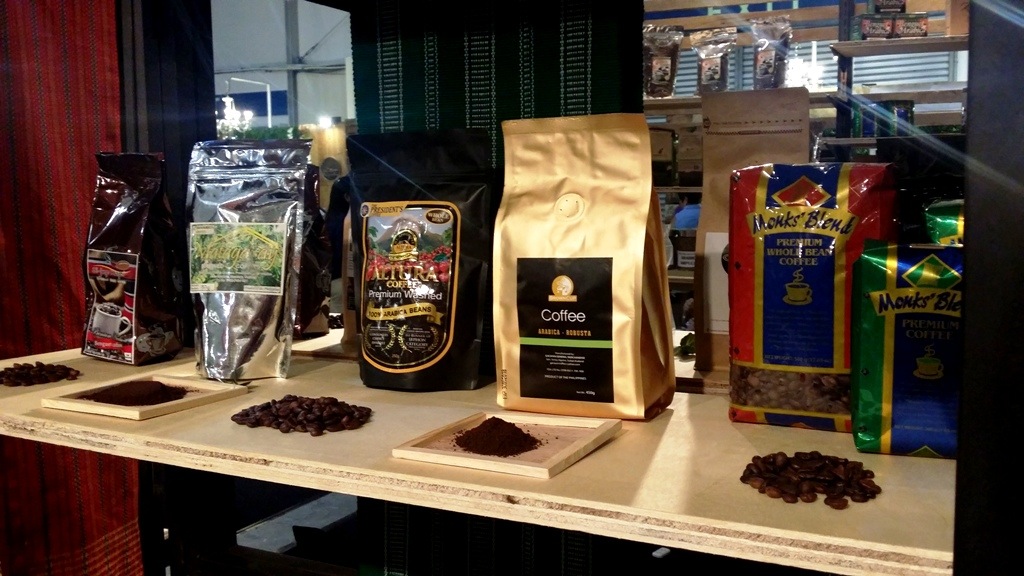
Tugonon also said that they are looking for more ways to tap the Middle East market, which has a high demand for halal-certified products.
In fact, IFEX has a special exhibition for Halal-certified products, which was mounted together with the Philippine Halal Board. It aimed to help cement Philippines’ position as an international Halal processing and manufacturing hub.
At the Food Artisans Village on the other hand, various cacao-inspired products and variants of coffee from different parts of the country are showcased.
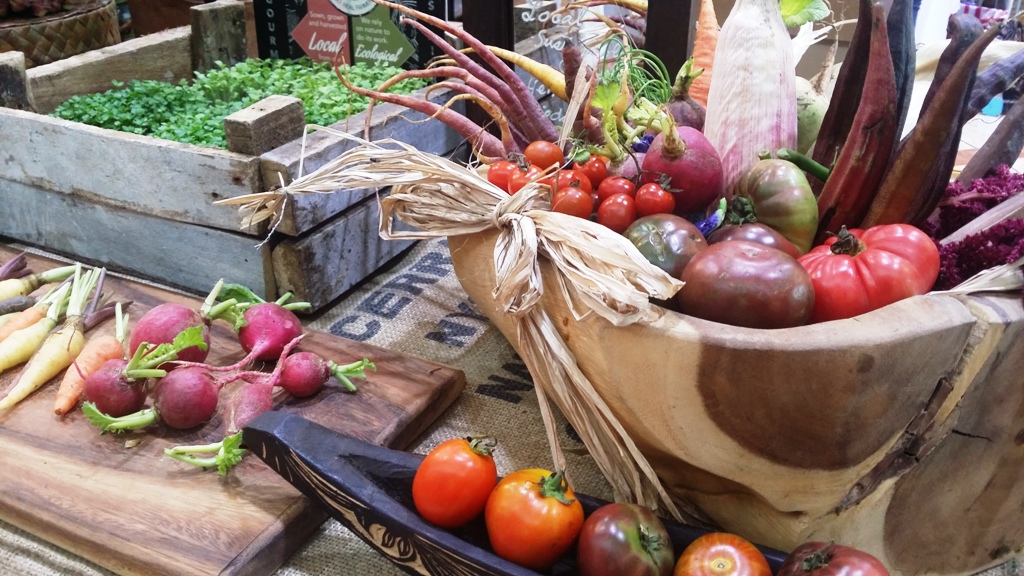
Healthy alternatives and sustainable products catering to the discerning and growing health conscious market also dominated IFEX.
“The robust demand for healthier food items in the international market, and the Philippines’ role as a fast-rising Asian marketplace make this year’s IFEX exhibition truly exciting,” Tugonon noted.
Meanwhile, here are some of the interesting products we saw at IFEX:
1.Nuco’s Organic Coconut Wraps
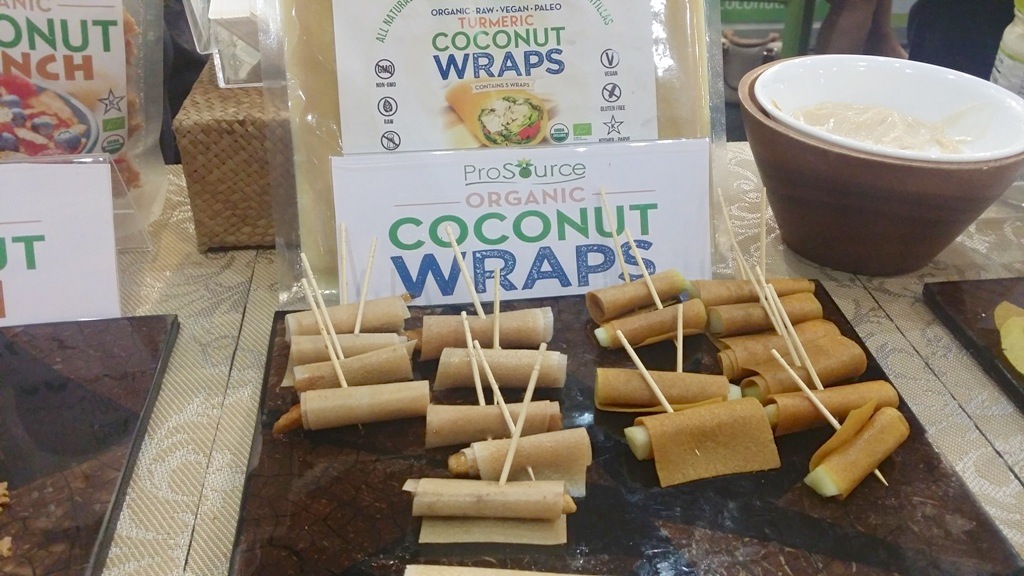
A healthier option than spring roll wraps, bread, or tortilla, Nuco’s organic coconut wraps are made from only three ingredients: extra virgin coconut oil, organic coconut water, and organic coconut meat. These wraps are gluten-free, corn-free, soy-free, dairy-free,and egg-free.
2. 7 Grains Pantry’s Skinny Carbs and Skinny Tomato Ketchup

A first-timer at IFEX, 7 Grains Pantry offers healthy food items from condiments to snacks. Among their products are Skinny Carbs, which is branded as a “superfood made out of Konjac plant but tastes like noodles.” It is made of 95% fiber, and has only six calories per 200 grams. This product is friendly to those with strict diets like those with diabetes.
Another product of 7 Grains Pantry is the Skinny Tomato, a tomato ketchup substitute made from fresh tomatoes and organic coconut sap sugar instead of cane sugar.
3. Rico’s Corn Rice
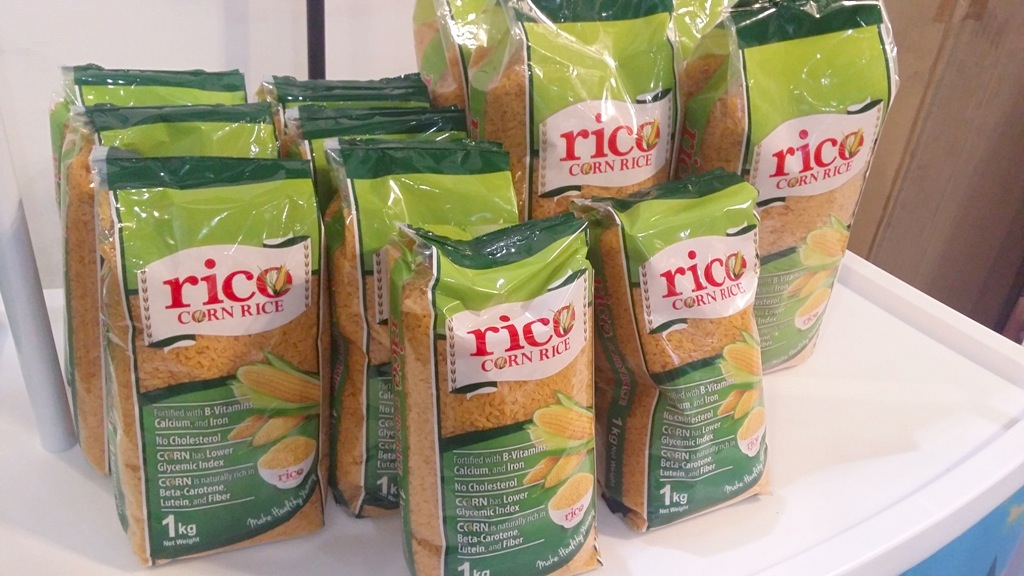
Halal-certified Rico’s corn rice is made from 100% Philippine-grown corn; fortified with B-Vitamins, calcium, and iron; and has no artificial colors. A healthier alternative than ordinary rice, corn rice is ideal for diabetics.
4. Take Root’s Kale Chips

A healthier snack concept, Take Root is offering Halal-certified kale chips in different flavors: vegan cheeze, sour kream and chive, margherita pizza, rosemary peppercorn, and salad snackers. Vegan and gluten-free, the kale used in their chips are locally grown in Tagaytay.
5. Nutridense Food’s Brown Rice Bar

Made from natural rice ingredients, this easy-to-bring functional food bar is rich in dietary fibers, vitamins, and phytic acids among others. A healthy alternative to ordinary snacks, these brown rice bars are recommended to those who watches their weight, athletes, and children.
6. Mama Sita’s Bibingkrep

Established local brand that represents fine Filipino cooking, Mama Sita is introducing one of their newest products, the Bibingkrep. The rice flour mix is a fusion of the traditional bibingka ingredients and the concept of pancakes. Instead of using clay pot steamers lined with banana leaves, the bibingkreps can be cooked like pancakes—on a frying pan or griddle—and goes well with sugar or fruit syrups.
7. Gorio’s mango flour stick noodles

This flour is made from mango kernels. A healthy alternative to ordinary noodles, this product is rich in anti-oxidants, is gluten free, and has no artificial coloring.
8. ASEAN Pavilion
A visit is worthwhile in this pavilion. It showcases premium food and ingredients that are unique to each participating ASEAN country.




